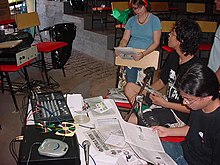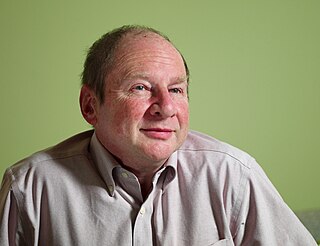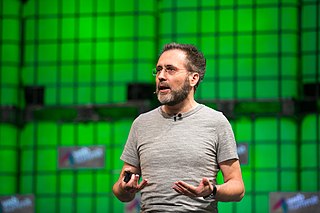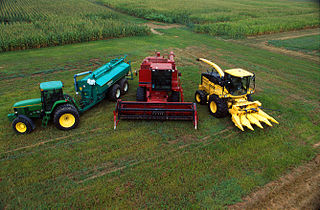
Community technology, community tech for short, is a broad and diverse movement to design and build technology owned by a community to meet its needs. It's oftentimes seen as a counter example to Big Tech.

Community technology, community tech for short, is a broad and diverse movement to design and build technology owned by a community to meet its needs. It's oftentimes seen as a counter example to Big Tech.
In the 1970s, Karl Hess and Therese Hess organized with neighbors in the Adams Morgan neighborhood to form the Adams Morgan Community Technology Project. The five year experiment used technologies like aquaponics and solar power to advance community self-sufficiency.
Karl Hess published the book Community Technology, documenting the lessons learned and philosophized on the role technology can play in advancing collective autonomy. [1]
Hess critiqued the extreme concentration of economic and political power in the hands of the wealthy and saw community technology as a way to disperse and redistribute power.
"The most powerful point to be made for community technology efforts is that when people take any part of their lives back into their own hands for their own purposes, the cause of local liberty is advanced; and such liberty, in turn, seems the strongest base on which to found a decent culture of mutual aid and humane purpose."
Gentrification weakened the social base powering many of the community projects in Adams Morgan.
The Hess's eventually relocated to West Virginia where they applied the principles of community tech to build a largely self-sufficient home. Karl Hess taught courses on community tech at the Institute for Social Ecology.

When computers became widely available, but not yet common household items, the community technology center (CTC) emerged to provide public access to computers.
Libraries and schools established computer labs available to the community. Some community technology centers were their own standalone places.
In the 1990s, Independent Media Centers were a specific form of CTC that the global justice movement used to document and broadcast its protest and events as a counter narrative to mainstream media coverage.
In 2001, TechSoup (then called CompuMentor) created the Community Technology Network to a "rapidly growing need for public digital literacy training." [2] In 2008, they became their own independent nonprofit.
Community organizers and technologists gathered together in 2015 for the Community Tech Network Gathering (no relation to the Community Technology Network). [3]
This established a new framing for a community tech movement that emphasized a technology built for and by community members.
Core organizers and participants of the gathering included the Detroit Community Technology Project, Palante Tech Cooperative, the Open Technology Institute and Co.open Media Cooperative.
In the United Kingdom, a similar tendency of community tech is active via a community of practice and newsletter. [4]
The Community Tech Project in the UK defines community tech as,
"any hardware or software that delivers benefit to a community group, and which that community group has the authority to influence or control."
Examples of community tech include:

The Chaos Computer Club (CCC) is Europe's largest association of hackers with 7,700 registered members. Founded in 1981, the association is incorporated as an eingetragener Verein in Germany, with local chapters in various cities in Germany and the surrounding countries, particularly where there are German-speaking communities. Since 1985, some chapters in Switzerland have organized an independent sister association called the Chaos Computer Club Schweiz (CCC-CH) instead.
CTC may refer to:

Karl Hess was an American speechwriter and author. He was also a political philosopher, editor, welder, motorcycle racer, tax resister, and libertarian activist. His career included stints on the Republican right and the New Left before embracing a mix of left-libertarianism and laissez-faire anarcho-capitalism, a term which is attested earliest in his 1969 essay "The Death of Politics". Later in life, he summed up his role in the economy by remarking "I am by occupation a free marketer ."

Harold Abelson is an American mathematician and computer scientist. He is a professor of computer science and engineering in the Department of Electrical Engineering and Computer Science at the Massachusetts Institute of Technology (MIT), a founding director of both Creative Commons and the Free Software Foundation, creator of the MIT App Inventor platform, and co-author of the widely-used textbook Structure and Interpretation of Computer Programs, sometimes also referred to as "the wizard book."

The open-design movement involves the development of physical products, machines and systems through use of publicly shared design information. This includes the making of both free and open-source software (FOSS) as well as open-source hardware. The process is generally facilitated by the Internet and often performed without monetary compensation. The goals and philosophy of the movement are identical to that of the open-source movement, but are implemented for the development of physical products rather than software. Open design is a form of co-creation, where the final product is designed by the users, rather than an external stakeholder such as a private company.
The Combat Capabilities Development Command (CCDC) C5ISR Center, formerly the Communications-Electronics RD&E Center (CERDEC), is the United States Army information technologies and integrated systems center. CCDC C5ISR Center is headquartered at Aberdeen Proving Ground in Maryland, with activities at Fort Belvoir in Virginia and Joint Base McGuire-Dix-Lakehurst in New Jersey.

A telecentre is a public place where people can access computers, the Internet, and other digital technologies that enable them to gather information, create, learn, and communicate with others while they develop essential digital skills. Telecentres exist in almost every country, although they sometimes go by a different names including public internet access center (PIAP), village knowledge center, infocenter, Telecottage, Electronic Village Hall, community technology center (CTC), community multimedia center (CMC), multipurpose community telecentre (MCT), Common/Citizen Service Centre (CSC) and school-based telecentre. While each telecentre is different, their common focus is on the use of digital technologies to support community, economic, educational, and social development—reducing isolation, bridging the digital divide, promoting health issues, creating economic opportunities, leveraging information communications technology for development (ICT4D), and empowering youth.

Urs Hölzle is a Swiss software engineer and technology executive. As Google's eighth employee and its first VP of Engineering, he has shaped much of Google's development processes and infrastructure, as well as its engineering culture. His most notable contributions include leading the development of fundamental cloud infrastructure such as energy-efficient data centers, distributed compute and storage systems, and software-defined networking. Until July 2023, he was the Senior Vice President of Technical Infrastructure and Google Fellow at Google. In July 2023, he transitioned to being a Google Fellow only.
Jiangsu Lemote Tech Co., Ltd or Lemote is a computer company established as a joint venture between the Jiangsu Menglan Group and the Chinese Institute of Computing Technology, involved in computer hardware and software products, services, and projects.
Antonia "Toni" Stone was an educator and pioneering activist against the growing digital divide who created the United States' first community technology center. After 20 years as a mathematics teacher in New York City private schools, Stone changed her focus to technology education for poor communities and formerly incarcerated adults.
1984 Network Liberty Alliance is a loose group of software programmers, artists, social activists and militants, interested in computers and networks and considering them tools to empower and link the various actors of the social movement around the world. They are part of the hacktivism movement.
Ronald Baecker is an Emeritus Professor of Computer Science and Bell Chair in Human-Computer Interaction at the University of Toronto (UofT), and Adjunct Professor of Computer Science at Columbia University. He was the co-founder of the Dynamic Graphics Project (DGP), and the founder of the Knowledge Media Design Institute (KMDI) and the Technologies for Aging Gracefully Lab (TAGlab) at UofT. He was the founder of Canada's research network on collaboration technologies (NECTAR), a founding researcher of AGE-WELL, Canada's Technology and Agine research network, the founder of Springer Nature's Synthesis Lectures on Technology and Health, and the founder of computers-society.org. He also started five software companies between 1976 and 2015. He is currently an ACM Distinguished Speaker.

Agricultural machinery relates to the mechanical structures and devices used in farming or other agriculture. There are many types of such equipment, from hand tools and power tools to tractors and the farm implements that they tow or operate. Machinery is used in both organic and nonorganic farming. Especially since the advent of mechanised agriculture, agricultural machinery is an indispensable part of how the world is fed.
mychillo
A self-managed social center, also known as an autonomous social center, is a self-organized community center in which anti-authoritarians put on voluntary activities. These autonomous spaces, often in multi-purpose venues affiliated with anarchism, can include bicycle workshops, infoshops, libraries, free schools, meeting spaces, free stores and concert venues. They often become political actors in their own right.
David Morris is an American author. He is a founder and distinguished fellow of the Institute for Local Self-Reliance (ILSR).

Open source is source code that is made freely available for possible modification and redistribution. Products include permission to use the source code, design documents, or content of the product. The open source model is a decentralized software development model that encourages open collaboration. A main principle of open source software development is peer production, with products such as source code, blueprints, and documentation freely available to the public. The open source movement in software began as a response to the limitations of proprietary code. The model is used for projects such as in open source appropriate technology, and open source drug discovery.